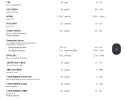I was self medicating and then secured prescriptions when I saw a new cardiologist and lied to him when I said my old cardiologist had prescribed them for me.Are these from your doctor or are you using Indian pharmacy drug etc?
The Indian pharmacy stuff was legit. Just as good as from a CVS or Walgreens.



